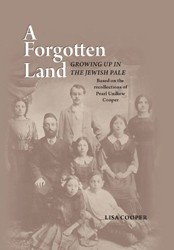Parents of the early ‘70s might recognize the school portrait of Jonathan Kushner, an image of an eleven-year-old redhead in a red shirt made famous by his abduction and brutal murder at the hands and whim of two unrelated men in Tampa, Florida in 1973.
The case was among the first in the spate of missing children that escalated to a cultural phenomenon across the United States: milk carton kids, 10:00 television PSAs, and grassroots door-to-door campaigns that terrorized young families through the following two decades. Jon Kushner was grabbed off his bicycle on shortcut through the woods for a candy run at the nearby 7‑Eleven, a quick ride from the home in which his parents still reside today. Alligator Candy, a memoir newly written by the Kushners’ youngest son, David, opens with the author’s memory of his brother’s departure that morning — his last memory of Jon.
Only four years old when Jon disappeared, David grew up haunted as much by what he knew of what happened as by what he didn’t. Uncertain of the events of the case, David’s childhood understanding of his brother’s death remained limited to unsubstantiated schoolyard rumors, imagination unbridled by facts, and his best translation of his parents’ and eldest brother’s reactions to each piece of undisclosed news until he found the resources — and courage — to discover and contend with truth on his own.
Perhaps his distance from the harrowing immediate experience of those around him at the time enabled David to write Jon’s story, to perceive what happened not only to his brother but to his family and the community surrounding them more clearly than anyone else connected to the tragedy could. The memoir is emblematically named after a small detail from the day Jon was murdered that was either forgotten, denied, or blocked out in grief by everyone else: the memory recounted in the beginning of the book that David alone retained, its very unreliability bonding David to that moment forever.
If David did not share in the same trauma as the rest of his family, however, he underwent a parallel trauma of his own — but then, that is the very nature of tragedy: those affected consoling one another through private, separate experiences of grief. Reading Alligator Candy, one senses that the project of this memoir might have been the only way David could fully face the loss of his brother, even now. While Kushner’s default Rolling Stone voice and lyrical imagery in scenes of large and small significance alike might otherwise feel a touch out of place, it is through such compositional foci that he is able to confront the narrative, each flourish demonstrating the comfort the author palpably draws from writing.
An inextinguishable eulogy for his brother, David Kushner’s memoir is the story of how one family found the strength to recover from the horrors of a living nightmare, a testament to the community of friends, neighbors, and complete strangers that came together to search for a missing boy and support the bereaved family in the years to follow.
Related Content:
Nat Bernstein is the former Manager of Digital Content & Media, JBC Network Coordinator, and Contributing Editor at the Jewish Book Council and a graduate of Hampshire College.





